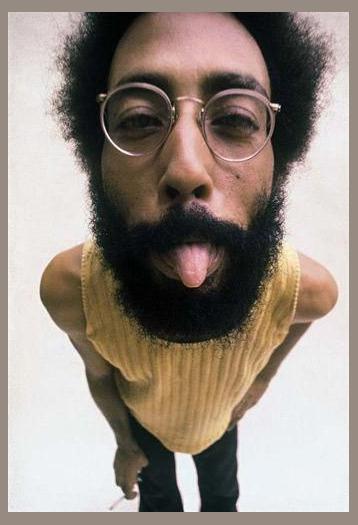 Jards Macalé
Jards Macalé
Jards Macalé: A Musical Maverick with a Controversial Legacy
In the vibrant tapestry of Brazilian music, Jards Macalé stands out as a bold and enigmatic figure. His music, a blend of traditional rhythms with avant-garde experimentation, challenged conventions and sparked both admiration and controversy.
Early Life and Artistic Beginnings
Born in Rio de Janeiro in 1938, Jards Macalé grew up immersed in the city's rich musical culture. He began playing the guitar at a young age and later studied at the renowned National School of Music. Inspired by artists such as Pixinguinha and João Gilberto, he developed a unique style that defied categorization.
Solo Career and Musical Innovations
Macalé's solo career took off in the late 1960s with the release of his debut album, "Jards Macalé." The album featured his groundbreaking composition "Movimento Dos Barcos," a mesmerizing blend of samba, bossa nova, and experimental sounds. Macalé's music pushed the boundaries of Brazilian popular music, incorporating elements of jazz, rock, and even classical music.
Collaboration and Critical Acclaim
Throughout his career, Macalé collaborated with a diverse array of artists, including Caetano Veloso, Gilberto Gil, and Baden Powell. His music was praised for its originality, complexity, and lyrical depth. However, his experimental approach also met with resistance from some critics who accused him of being too avant-garde.
Controversies and Personal Struggles
Macalé's outspoken nature and unconventional lifestyle often landed him in hot water. He was openly critical of the military dictatorship that ruled Brazil at the time and faced censorship and harassment from the authorities. Additionally, he struggled with drug addiction and mental health issues, which further fueled the controversy surrounding his music.
Discography
- Jards Macalé (1968)
- A Tábua de Esmeralda (1972)
- Contrastes (1976)
- Estrada Do Sol (1979)
- O Sabiá (1988)
- Ao Vivo No Circo Voador (1999)
- Em Movimento (2003)
Members
Jards Macalé was known for his collaborations, but he also performed and recorded with a rotating cast of musicians, including:
- Nelson Ângelo (guitar)
- Ruy Quaresma (bass)
- Luiz Carlos Ramos (drums)
- Wagner Tiso (keyboards)
- Jorge Mautner (vocals)
Legacy
Despite the challenges and controversies, Jards Macalé's music has left an enduring mark on the Brazilian musical landscape. His innovative spirit and willingness to challenge conventions continue to inspire a new generation of artists. His songs, such as "Movimento Dos Barcos," have become timeless classics and a testament to his unique and enigmatic talent.
In the vibrant tapestry of Brazilian music, Jards Macalé stands out as a bold and enigmatic figure. His music, a blend of traditional rhythms with avant-garde experimentation, challenged conventions and sparked both admiration and controversy.
Early Life and Artistic Beginnings
Born in Rio de Janeiro in 1938, Jards Macalé grew up immersed in the city's rich musical culture. He began playing the guitar at a young age and later studied at the renowned National School of Music. Inspired by artists such as Pixinguinha and João Gilberto, he developed a unique style that defied categorization.
Solo Career and Musical Innovations
Macalé's solo career took off in the late 1960s with the release of his debut album, "Jards Macalé." The album featured his groundbreaking composition "Movimento Dos Barcos," a mesmerizing blend of samba, bossa nova, and experimental sounds. Macalé's music pushed the boundaries of Brazilian popular music, incorporating elements of jazz, rock, and even classical music.
Collaboration and Critical Acclaim
Throughout his career, Macalé collaborated with a diverse array of artists, including Caetano Veloso, Gilberto Gil, and Baden Powell. His music was praised for its originality, complexity, and lyrical depth. However, his experimental approach also met with resistance from some critics who accused him of being too avant-garde.
Controversies and Personal Struggles
Macalé's outspoken nature and unconventional lifestyle often landed him in hot water. He was openly critical of the military dictatorship that ruled Brazil at the time and faced censorship and harassment from the authorities. Additionally, he struggled with drug addiction and mental health issues, which further fueled the controversy surrounding his music.
Discography
- Jards Macalé (1968)
- A Tábua de Esmeralda (1972)
- Contrastes (1976)
- Estrada Do Sol (1979)
- O Sabiá (1988)
- Ao Vivo No Circo Voador (1999)
- Em Movimento (2003)
Members
Jards Macalé was known for his collaborations, but he also performed and recorded with a rotating cast of musicians, including:
- Nelson Ângelo (guitar)
- Ruy Quaresma (bass)
- Luiz Carlos Ramos (drums)
- Wagner Tiso (keyboards)
- Jorge Mautner (vocals)
Legacy
Despite the challenges and controversies, Jards Macalé's music has left an enduring mark on the Brazilian musical landscape. His innovative spirit and willingness to challenge conventions continue to inspire a new generation of artists. His songs, such as "Movimento Dos Barcos," have become timeless classics and a testament to his unique and enigmatic talent.